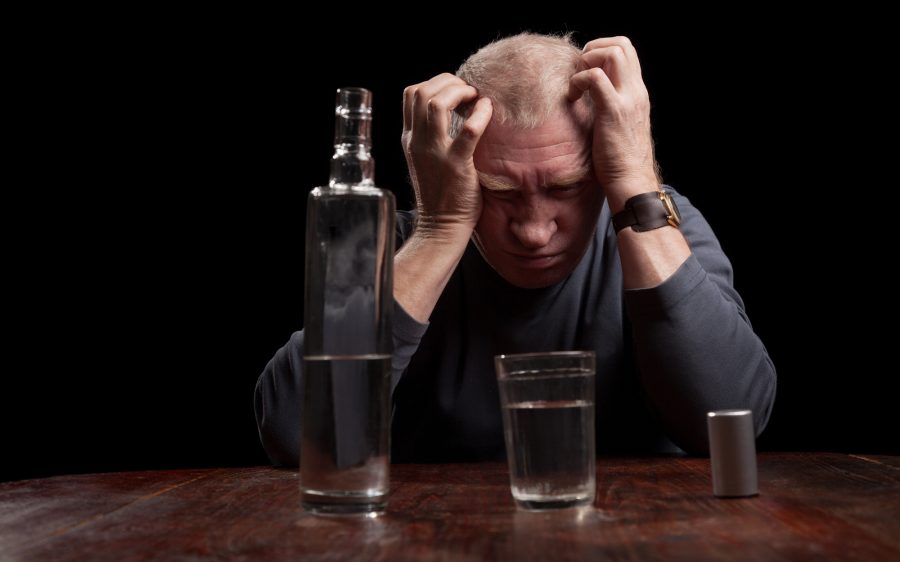
A whopping 32 million Americans are addicted to alcohol. It's as simple as that. Sadly, this debilitating disease can ruin your life if you let it get out of control.
If you think you or a loved one is suffering from alcoholism, then you're in the right place because throughout this blog post we'll cover the top ten warning signs of alcoholism.
Learn About Outpatient Treatment
Have you ever found yourself lying about your alcohol consumption? Needless to say, this is one of the most common warning signs of alcoholism.
Namely, because if you have a healthy relationship with alcohol, you don't feel the need to hide your drinking habits.
Do you ever find yourself defending your alcohol consumption? You may not even realize you're doing it. For example, drinking a bottle of wine by yourself because you found your lost phone charger isn't a healthy way to celebrate a mini win!
For example, drinking excessively on New Year's Eve might be one thing, but getting blackout drunk because it's a regular Friday night is a very different situation.
Many people assume that they would realize right away if they were becoming addicted to alcohol. In reality, people can convince themselves they aren't alcoholics based on these justifications.
Drinking alone is never a good thing to do (especially, if you're prone to heavy drinking). That's why it's considered one of the warning signs of alcoholism.
Arguably, it's worse than socially binge drinking. Namely, because it's covert in nature. In other words, you're beginning to feel the need to feed your alcohol habit secretly.
Join a Supportive Alcohol Recovery Program
If you find yourself gradually building a higher tolerance to alcohol, that's not a good sign.
By this, we mean you can consume more and more alcoholic beverages without feeling the effects in comparison to a time when you wouldn't need as many.
This means your body has become used to the presence of alcohol and is another sign that you may be an alcoholic.
Put it this way; if you have to consume a 12-pack of beer to feel the effects of alcohol, you might have a problem.
Do you regularly intend only to have one or two drinks and then end up drinking way more than that? If so, that's a classic sign of alcohol abuse. You should never drink until your body literally can't take anymore.
A crucial part of staying in control of your alcohol consumption is being able to set yourself limits and not break those boundaries. However, alcoholics find this very difficult to achieve.
So, if you begin to crave another drink after having had a couple of glasses, regardless of how drunk you are, think it through. This will give you time and space to evaluate your "needs."
Memory loss after a night of drinking is a surefire sign of alcohol abuse. If you find there are gaps in your memory after a night out this indicates two things;
Memory loss is a typical symptom of alcoholism, and the scary thing is, if you continue to drink heavily for years on end, you can develop permanent forms of amnesia.
If you find yourself needing to drink every single day, that's never a good sign. Even if it's just a couple of cans of beer, it's a signal you could be developing alcoholic tendencies.
Nobody should be drinking alcohol every day. If you find yourself having to get drunk daily, then you're probably starting to lose control over your ability to regulate your alcohol consumption.
If this resonates with you, we recommend that you seek professional help.
If you've started to lower your standard of hygiene and appearance because of your drinking, then you should check yourself.
This could include any of the following;
If this sounds like you, then try to either cut back on your alcohol consumption or better yet, stop drinking altogether.
Don't get us wrong it's normal to feel hungover if you've had a few too many to drink after a night out with your friends.
However, if you begin to wake up feeling hungover, even after not having had a drink the previous night, then you might be experiencing alcohol withdrawal symptoms.
If you fall into this category, we recommend seeking professional help immediately. This is a severe sign of alcoholism and an indication you're beginning to harm your physical health.
Learn More About Alcohol Detox
Do you regularly feel shame or embarrassed about your drinking? If this is a regular occurrence, then you may have crossed the thin line between social drinking and alcoholism.
If the above warning signs of alcoholism resonated with you, or, if you're worried about a loved one, we encourage you to reach out and contact us.
We would love to provide you with confidential advice to help steer you in the right direction. Just fill out the contact form below, and one of our friendly staff members will get back to you shortly. Speak soon!
For further help and guidance, please feel free to browse through our resources section. You may find some of the information on there of interest.
Resources:
Content medically reviewed by Vicky Magobet, PMHNP-BC, on April 30th, 2018.